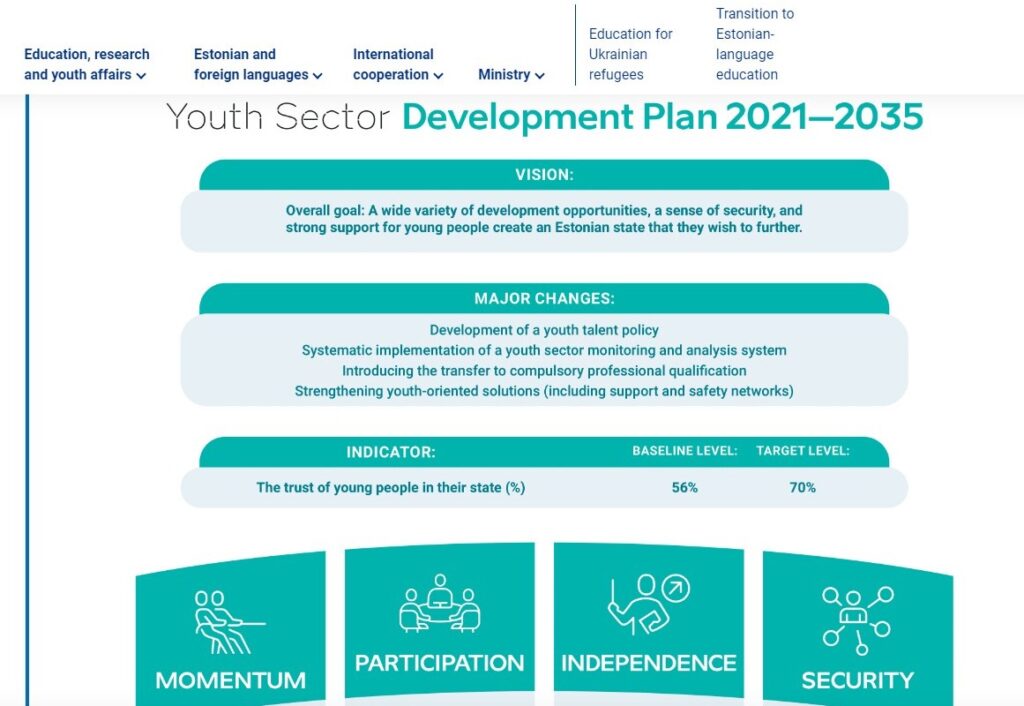The youth policy and youth work in Estonia is defined by many legal acts. According to the Youth Work Act, a young person is a natural person between the ages of 7 and 26. Youth work as a professional area is not defined in the Youth Work Act, however it is defined in Youth Sector Development Plan 2021-2035.
The Youth Sector Development Plan 2021-2035 outlines the strategic goals in the field of youth. This Plan has been written in cooperation with young people and other stakeholders and partners in the youth sector, its focus is on young people. The main activity areas of youth policy include youth work, social, employment, health, cultural, family and crime prevention policy.

The competences and ethical principles of youth work are defined also in Occupational standards of youth workers on different qualifications levels. Youth work can be studied in three academic institutions in Estonia: Tallinn University, Tartu University Narva College and Tartu University Viljandi Culture Academy, on different levels – higher applied sciences degree, bachelor’s degree, master’s degree. Youth work can be realised either as work on paid position or as volunteer commitments.
The institution in charge of youth in Estonia is the Ministry of Education and Research and to be exact, the Department of Youth and Talent Policy (before 2020 – Youth Affairs Department). The main goals of the department are connected with developing legislation, ensuring purposefulness and consistency, planning of resources, ensuring cohesiveness, and holding a public dialogue with partners regarding the implementation of youth policy.
Since 1st of August 2020, the national agency responsible for the implementation of education and youth policy, is the Education and Youth Board. The institution was established on the basis of the services of Innove Foundation, Archimedes Foundation, Information Technology Foundation for Education, and incorporated Estonian Youth Work Centre.
In order to implement integrated youth policy, all ministries are under the obligation to consider the youth policy principles in their areas of responsibility when developing measures and making decisions that affect young people.
According to the Local Government Organisation Act, the local governments have a key role in organising the topics related to local life, including youth work. Most of the financing of youth work comes also from the budget and own income of the local municipalities.
Important role has Estonian National Youth Council (ENL). It is an umbrella organization established in 2002 and unites 53 youth organisations throughout Estonia. ENL works for better and stronger youth organisations and has created a self-evaluation handbook for youth organizations. The book contains easier and more complicated methods which help the youth activists to evaluate the progress of their own organization and develop it for the better.
ENL cooperates regularly with researchers, legislation and ministries and strives for better youth policy. ENL participates in working groups, round tables and other organs as an expert in the youth field.